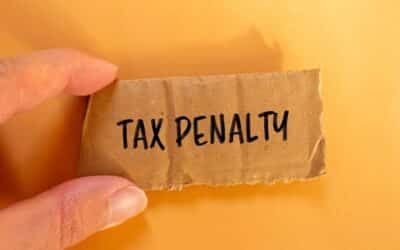Question: My company will shortly be signing a commercial lease at a local shopping mall to operate a retail business. Is the construction allowance the landlord pays to my company for leasehold improvements taxable?
Answer: It is customary for landlords to provide construction allowances for tenants of newly leased premises to enable their tenants to make leasehold improvements. The taxation of construction allowances provided by landlords in these circumstances depends upon the specifics of the transaction.
The Internal Revenue Code provides a specific exclusion from a tenant’s income for construction allowances provided by a landlord. The exclusion applies only if certain requirements are satisfied. First, the lease must extend for a term of not more than fifteen years. For this purpose, all lease renewal options are taken into account. Second, the allowance must be for the construction or improvement of long-term real property used in the tenant’s trade or business. A long-term real property consists of improvements to real estate and does not include construction allowances for personal property. Third, the improvements must revert to the landlord at the expiration of the lease term.
Other requirements must be satisfied to meet the specific exclusion from income. IRS Treasury Regulations require that the lease specifically states that the allowance provided by the landlord is for the construction of long-term real property in the tenant’s business. If the tenant does not expend the full construction allowance, the excess is taxable to the tenant. Also, any construction allowance generally must be expended within 8 ½ months after the close of the taxable year in which the amount is received by the tenant. Finally, specific disclosures must be made on the tax returns of both the landlord and the tenant.
Obviously, not all construction allowances will fit within these parameters. The failure to satisfy the foregoing requirements does not necessarily mean a construction allowance will be taxable to the tenant although the law is less certain on this subject. If the leasehold improvements revert to the landlord at lease expiration, the improvements arguably will still not be taxable to the tenant. If the tenant becomes the owner of the leasehold improvements at the time the lease expires, then the leasehold improvements will be taxable to the tenant at the time the construction allowance is paid. Because personal property improvements will never fit within the Internal Revenue Code’s specific exclusion, the tax aspect of these improvements will depend upon whether or not the improvements revert to the landlord or the tenant at the time of the lease expiration.
From a planning perspective, several steps can be taken to support the exclusion from income. As a tenant, you should structure the lease to satisfy the requirements for the specific exclusion from income as failing to meet these requirements provides less certainty as to the tax treatment. The lease term, including any lease renewal options, should not extend for more than fifteen years. Finally, the required specific language should be inserted in the lease and the necessary disclosures should be made on yours and the landlord’s tax returns. With careful planning, your company should be able to exclude the leasehold improvements from taxable income.
The Tax Corner addresses various tax, estate, asset protection and other business matters. Should you have any questions regarding the subject matter, you may contact Bruce at (312) 648-2300 or send an e-mail to [email protected].


